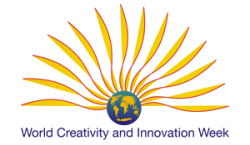Brains, dopamine and gadgets: are faciliation and leadership practices changing?
Great insight into what’s happening to our wired techno-addicted brains from NPR’s program, Fresh Air, describing findings from New York Times technology and telecommunications reporter Matt Richtel.
The findings triggered my thinking: is the dopamine squirt that accompanies the immediate feedback from our current gadgetry being accounted for by facilitators and leaders? How much of the ‘aha’ experience is accounted for by the release of dopamine?
Do new ideas and new decisions, i.e. creativity, imply that a dopamine release is promised? To create new futures, must we ensure a good time is had by all?
Snippet
“…one study conducted at Stanford University, showed that heavy multimedia users have trouble filtering out irrelevant information — and trouble focusing on tasks. Other research, he says, says that heavy video game playing may release dopamine, which is thought to be involved with addictive behaviors.
“When you check your information, when you get a buzz in your pocket, when you get a ring — you get what they call a dopamine squirt. You get a little rush of adrenaline,” he says. “Well, guess what happens in its absence? You feel bored. You’re conditioned by a neurological response: ‘Check me check me check me check me.’ “
Transcript here.
Questions for facilitation
- What do facilitators do to trigger the dopamine response? How is the boredom that occurs after the rush of the ‘aha’ handled?
- What percentage of time during the creative process should be dedicated toward participants getting a ‘dopamine squirt?’
- What kinds of immediate feedback/attention are available during facilitated sessions that have the same impact as tweets?
- Does each person experience the ‘high’ under the same conditions at the same time?
- Does personality style provide insights into the dopamine activators for participants?
- How might the ‘high’ of connecting new ideas to respond to a challenge be extended into the action to make the new idea real? What apps are out there for that?
- What are ways to work with ‘dopamine’ addicts during ideation sessions and how important is it to achieving the desired outcome?
Questions for leadership
- How are organizational leaders, supervisors, managers, etc accommodating the dopamine release, do they perceive it as a worker need for engagement and motivation?
- Does creative leadership imply a higher release of dopamine among workers, colleagues, suppliers, customers?
Related Articles
- Links to Flood Your Brain (smartbitchestrashybooks.com)
- Too Much Digital Too Much For Your Brain? (psychologytoday.com)
- Dopamine and Vacations: 8 tips for enjoying your time off (psychologytoday.com)
- Hooked on Gadgets, and Paying a Mental Price (textually.org)
- This Is Your Brain on Computers (neatorama.com)
- Brain Chemical Makes Us More Impulsive (livescience.com)


[...] you had a eureka moment? Has your dopamine been triggered? Are you feeling any different? Pay attention. There could be a message here for [...]